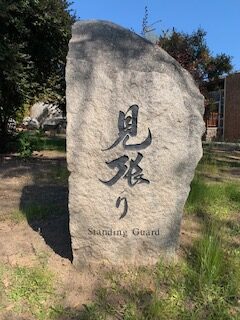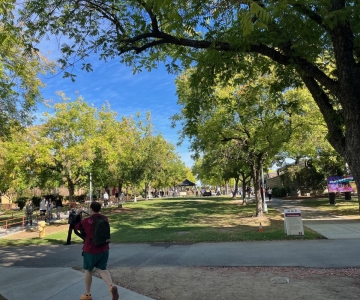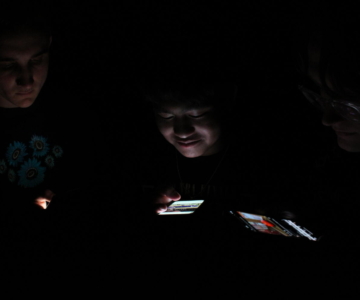College students are often stressed and some even have anxiety and depression due to the pressures they face. According to Mental Health Therapist and Counselor at Sierra College, Jamie Chin, “When we have anxiety and stress we have a lot of negative thinking going on.” And in describing Gen-Z specifically, she said, “I’m just calling you guys the anxiety generation.” So what can we do?
Quieting Stress

I interviewed Jamie Chin on Oct. 9 in her office on the Rocklin campus to learn more about stress and how we can better cope with it. Chin said that meditation is excellent for college students’ mental health. It can boost creativity, improve short term memory, help with focus, and help people feel more positive.
A human challenge is that our brains are wired to think about the worst-case scenario, which can lead to excessive negative thinking. This involuntary negativity is both conscious and unconscious and happens in response to everyday events.
Negative thinking can increase a student’s anxiety levels. The way we think can influence how we feel, and even what we do.
For example, thinking negative thoughts such as, “I’m going to mess up this presentation” can impact how you feel and what you do, from making you stutter or lose your train of thought during a presentation to feeling bad about how you did for the rest of the day.
Negative thinking can also influence future actions, such as thinking that you are bad at math, and then failing your next math test.
Chin said that anxiety is one of the main mental illnesses she sees in college students. And it may be on the rise among this group. Meditation can help with anxiety because it helps to “quiet our minds” Chin said.
According to Chin, meditation is the most accessible mental health resource for college students. Anyone can do it. Students do not need any special equipment to practice it. Chin said, “And best of all, ‘It’s free!”
For many the hardest part about meditation is starting. But every good habit comes from practice and patience. Chin said that if you stick with it for thirty days, you will see results, “The more you have a practice of meditation, the better you will get [at it].” She said, “The goal is to do it without judgment,” and added that too much self-judgment can block self-compassion.
Campus Calm

On the Rocklin campus there are some ideal outdoor places to start this helpful practice. Chin said, “Nature is an under-utilized resource for mental health.” Data show that the more college students meditate outside, the more their moods improve.
Meditation is more than just sitting cross-legged in silence. You can meditate sitting, laying down, or even walking.
Hoyok, the Standing Guard Japanese memorial garden, and the Meditation room in the Library are all good places to meditate.
Hoyok has a winding trail that runs alongside its creek. It’s a peaceful place to walk and meditate that is only minutes from classroom buildings on the west side of campus.

The Standing Guard garden, between Weaver Hall and Walker Hall, is a place for reflection and meditation. The beautiful stone statues and rock formations inspire awe and creativity. They are there to acknowledge the Japanese internment camps that used to be in the area and respect the lives lost during this time in history.
These places in nature are great spots to meditate, however, the Meditation Room on the third floor of the Rocklin Library is a great indoor space for students wanting to stay warm in the winter or just looking to get away from the noise of highway I80. It is a safe space for all students- including novice meditators. Here, you can sit cross-legged on a yoga mat, take in the view, or even lay on a blanket to meditate.
Learning Mindfully
As beautiful as Sierra College’s meditation spots are, it is important to remember that meditation can be done anywhere, anytime: in the car, while walking to class, or even while brushing teeth.

Active meditation comes down to simply being more aware while doing everyday activities. This awareness while doing mundane things can help one get accustomed to more deliberate meditation.
Meditation can be a powerful tool for helping with mental health. This is especially true for college students when one considers the impact that midterms and finals can have on one’s psyche. Best of all, in addition to the health benefits, meditation is quick, easy, and, most importantly, free.
Sierra College has safe and quiet places, both outside and in, to meditate and support students’ positive mental health habits.
Written and Reported by Taylor Rau




